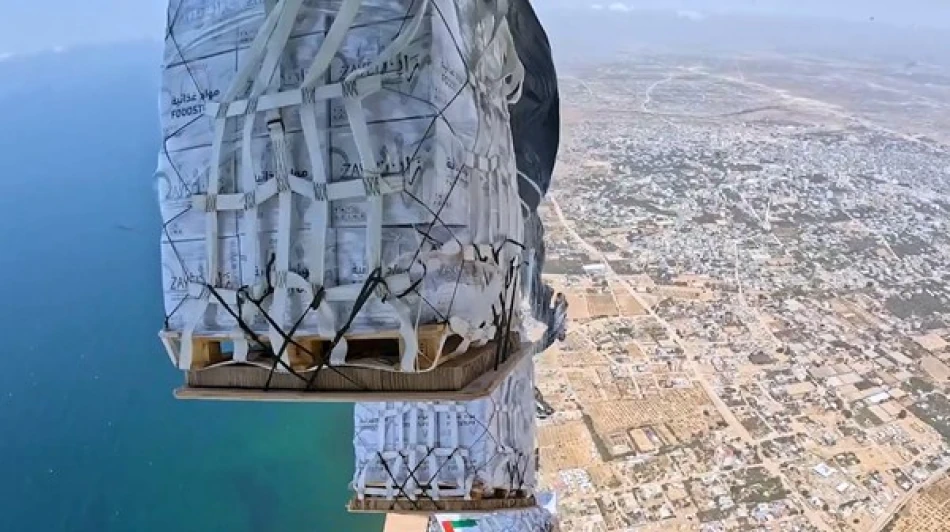
UAE Conducts 67th Aerial Humanitarian Airdrop to Aid Gaza
UAE Delivers 67th Humanitarian Airdrop to Gaza as International Coalition Expands Relief Efforts
The United Arab Emirates has completed its 67th humanitarian airdrop over Gaza, delivering essential food supplies as part of its "Birds of Goodness" operation under the broader "Noble Knight 3" relief campaign. The mission, conducted in partnership with Jordan, Germany, Italy, the Netherlands, and Greece, brings the UAE's total aerial aid deliveries to over 3,892 tons, highlighting the Gulf nation's growing role as a coordinator of international humanitarian responses.
Multi-National Humanitarian Coalition Takes Shape
The latest airdrop represents a significant expansion of international involvement in Gaza relief efforts. The participation of European nations alongside regional partners Jordan and the UAE signals a broader diplomatic consensus on addressing the humanitarian crisis through practical, non-political aid delivery mechanisms.
This coalition approach mirrors successful international relief operations in other conflict zones, where the UAE has increasingly positioned itself as a neutral facilitator. The country's strategic geographic location and well-developed logistics infrastructure make it an ideal staging ground for such operations, similar to how Cyprus has served as a humanitarian hub for Middle Eastern crises.
Strategic Implications for Regional Diplomacy
UAE's Humanitarian Leadership
The scale and consistency of the UAE's Gaza operations underscore the nation's broader foreign policy shift toward humanitarian diplomacy. With 67 airdrops completed, the Emirates has demonstrated both logistical capability and sustained political commitment that few other regional powers can match.
This approach allows the UAE to maintain engagement with Palestinian issues while avoiding the political complexities that have historically complicated Arab-Israeli relations. By focusing on humanitarian rather than political solutions, the Emirates can work alongside both regional and international partners without triggering diplomatic tensions.
International Coordination Model
The "Noble Knight 3" operation's multi-vector approach—combining air, land, and sea deliveries—represents a sophisticated humanitarian logistics model. This comprehensive strategy addresses the practical challenges of aid delivery in conflict zones while maximizing international participation and burden-sharing.
The involvement of European nations like Germany and the Netherlands suggests these countries view the UAE-led initiative as an effective alternative to more politically sensitive direct engagement. For European policymakers, participating in UAE-coordinated relief efforts provides a pathway to address constituent concerns about the humanitarian situation while maintaining broader diplomatic flexibility.
Broader Context and Future Implications
The sustained nature of these operations—now spanning 67 separate airdrops—indicates this is not a short-term emergency response but rather a long-term humanitarian infrastructure. This consistency suggests the participating nations anticipate continued need for such assistance and view the current operational framework as sustainable.
From a regional perspective, the UAE's coordination role in Gaza relief efforts reinforces its position as a pragmatic middle power capable of bridging different international constituencies. This humanitarian leadership complements the country's economic diplomacy and positions it as an indispensable partner for both regional stability and international crisis response.
The success of this multi-national model may establish a template for future humanitarian operations in complex conflict environments, where traditional diplomatic channels prove inadequate but practical aid delivery remains both necessary and politically feasible.
Most Viewed News

 Layla Al Mansoori
Layla Al Mansoori






